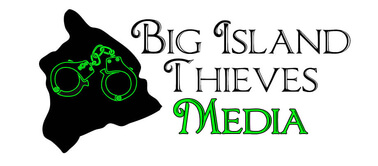Nestled at the back of Kalihi Valley, staff and volunteers for Ho’oulu ‘Āina work to harvest locally-grown plants for food and indigenous medicine.
Operating under a recently extended 35-year lease, administered by the DLNR Division of State Parks, Ho’oulu ‘Āina is led by Puni Jackson. She’s described as a passionate, dedicated indigenous woman, community leader, and health practitioner who understands and teaches how the health of our forests, and the health of our communities are inextricably linked, as a kinship relationship.
This morning the National Association of State Foresters recognized Jackson with its annual leadership award. She was nominated by Heather McMillen, the DLNR Division of Forestry and Wildlife (DOFAW) Urban and Community Forester.
“Puni has a deep understanding of the essential role of forests in people’s lives and the holistic nature of urban and community forestry,” McMillen wrote in her nomination. “The innovative programming at Ho’oulu ‘Āina grows the resilience of Hawaiian and other Pacific Islander community members, while also opening a learning and healing environment to everyone. Her compassion and commitment to growing the health of people and forests together is unmatched,” McMillen said.
Kokua Kalihi Valley Comprehensive Family Services (KKV) is the organizational home for Ho’oulu ‘Āina. KKV is the only community health center in the country to have a 100-acre nature preserve as a site for healing.
Ho’oulu ‘Āina has an array of community and cultural programs that connect people to family, culture, community, and land. McMillen commented, “Puni leads these efforts in the forest. She has been instrumental in establishing the organization as a healing refuge for community members and for Native Hawaiian cultural practitioners, in a space where native forest restoration and urban agroforestry flourishes, as do people.”
Reacting to the foresters’ award, Jackson said, “It’s surprising. I don’t necessarily see our work as forestry all the time. I see it as part of community. I see myself as a community leader, and a cultural leader and the forest is part of that.”
She explains that the national recognition for Ho’oulu ‘Āina is exciting. “I’ve been part of the national conversation on forests for the last two decades and to see our work celebrated…work that is about native voice, native practice, and specific to indigenous people and their practices on the land, is a really important step forward,” Jackson said.
Ho’oulu ‘Āina regularly hosts hundreds of volunteers to help with gardening, harvesting, and forest restoration, as the 100-acres extends from the valley floor to the top of the ridge. McMillen concluded, “KKV and Ho’oulu ‘Āina are cherished partners for DOFAW and we are most grateful for this partnership.”



